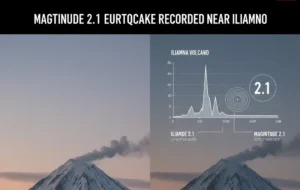The Trump administration has moved to eliminate key climate services, announcing NOAA Arctic monitoring cuts that scientists say threaten vital research. This week, NOAA’s National Centers for Environmental Information officially shut down its snow and ice data programs, impacting global and regional climate reporting.
The National Snow and Ice Data Center (NSIDC) confirmed that NOAA’s discontinued services will halt updates to several core datasets for tracking Arctic changes. These datasets have long supported daily updates and historical analyses that show how Arctic sea ice is shrinking due to climate change.
Rick Thoman, a climate specialist at the University of Alaska Fairbanks, said the decision shocked him when he learned about it on Tuesday morning. Thoman relies on NOAA’s data to produce reports about sea ice in Alaska’s Bering, Chukchi, and Beaufort seas, helping local communities and planners understand changing conditions.
Without these datasets, Thoman warned that comparing current ice conditions to past decades will become nearly impossible for scientists and policymakers alike. Thoman explained that they will lose the ability to provide critical historical context, emphasizing the importance of long-term records for infrastructure planning projects like the Port of Nome expansion.
The NSIDC said its reports will continue but will be limited to basic levels, meaning fewer updates and reduced maintenance due to NOAA’s cuts. The affected data include glacier photographs, the World Glacier Inventory tracking over 130,000 glaciers, and detailed monthly sea ice analyses extending back to 1850.
Although alternative sources like the European Union’s Copernicus program and Japan’s JAXA satellite system still provide sea ice data, Thoman noted that they lack NOAA’s regional detail. He questioned the reasoning behind ending programs that “help illustrate environmental change” and lamented the loss of public records such as glacier photo archives.
The Trump administration’s move aligns with Project 2025, a conservative policy blueprint that targets NOAA’s climate research for elimination, labeling it harmful to U.S. prosperity. Meanwhile, NOAA plans to discontinue other services, including ocean current tracking, earthquake records, and the Marine Environmental Buoy Database.
Alaska’s state Senate has asked NOAA to maintain and improve its marine buoys, which provide vital safety data for coastal communities. Climate scientists warn that the Arctic monitoring cuts will jeopardize crucial environmental insights and hinder efforts to understand ongoing Arctic transformation.











